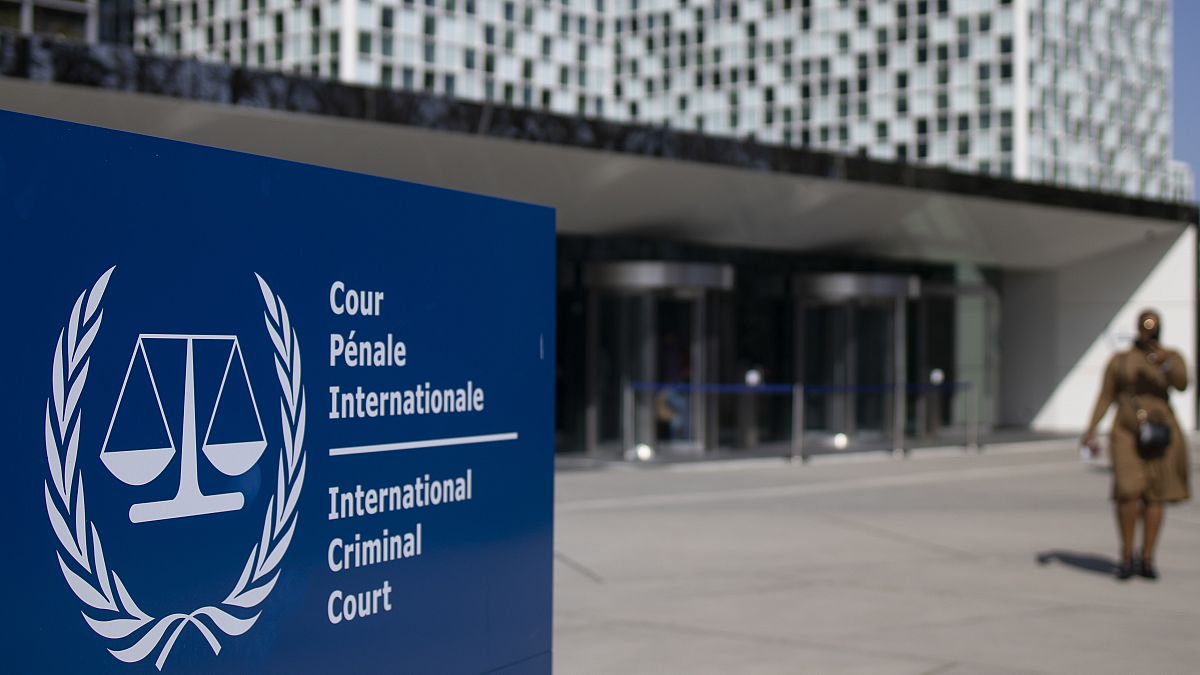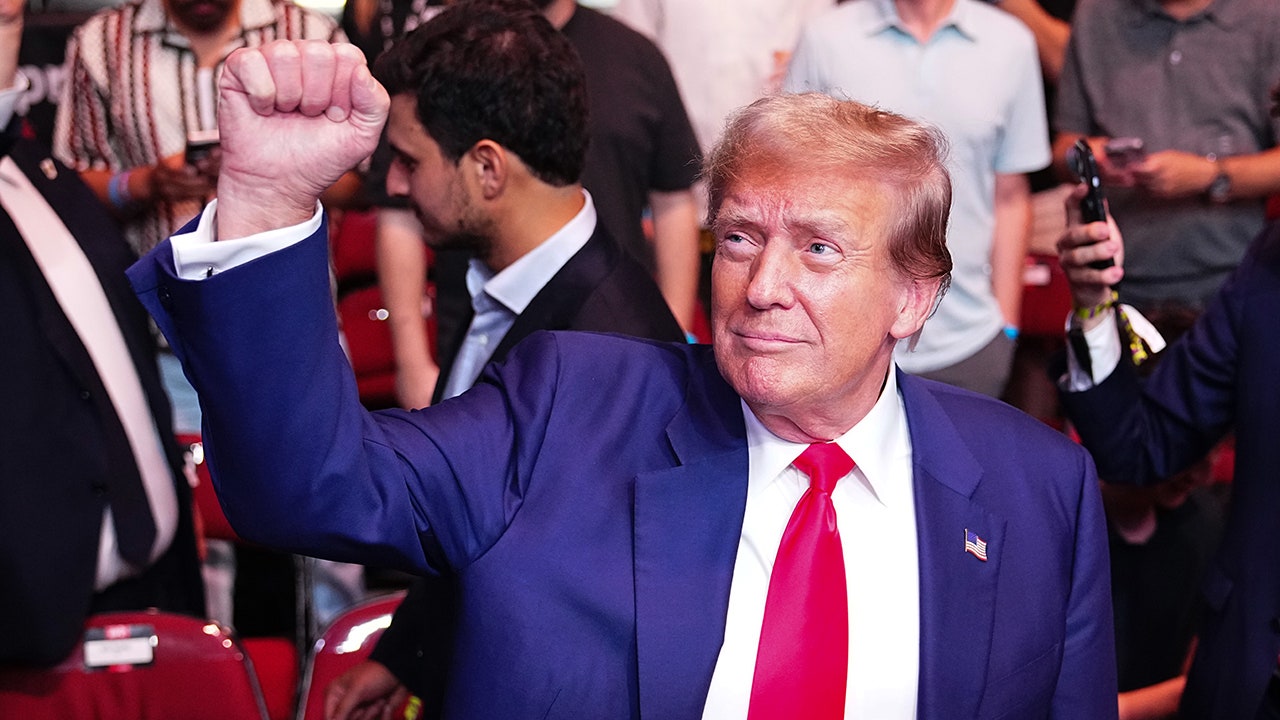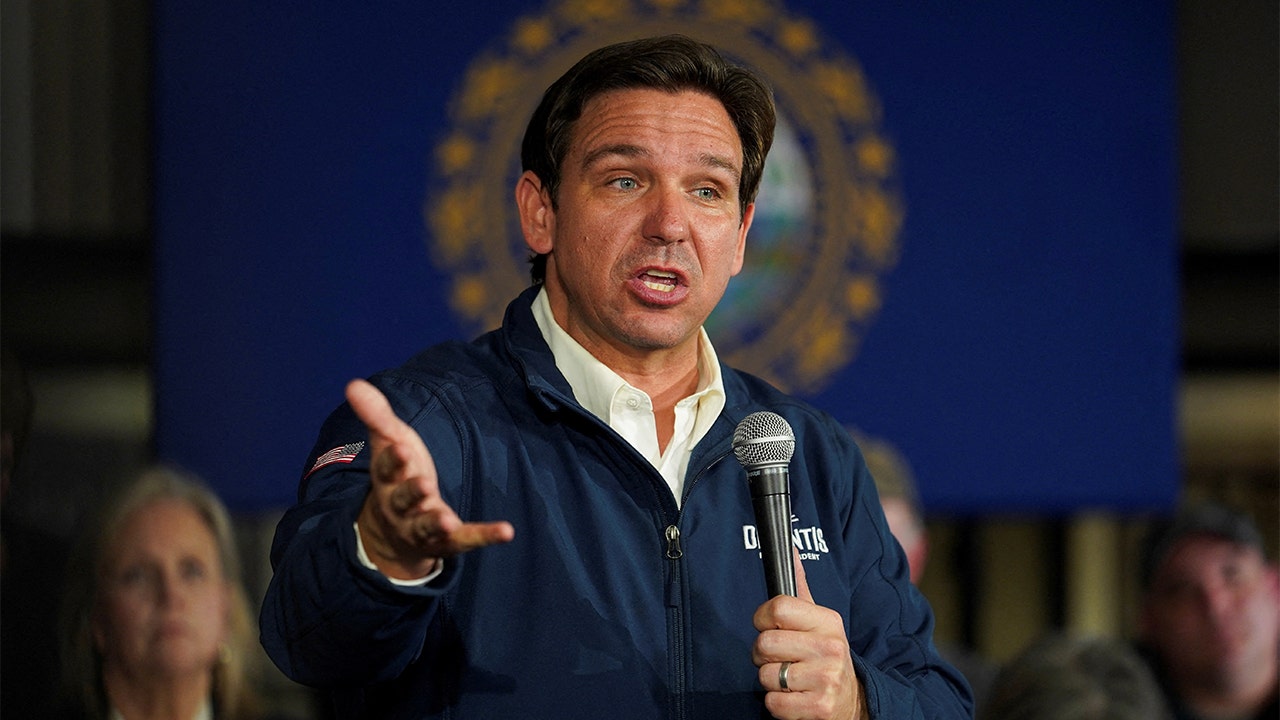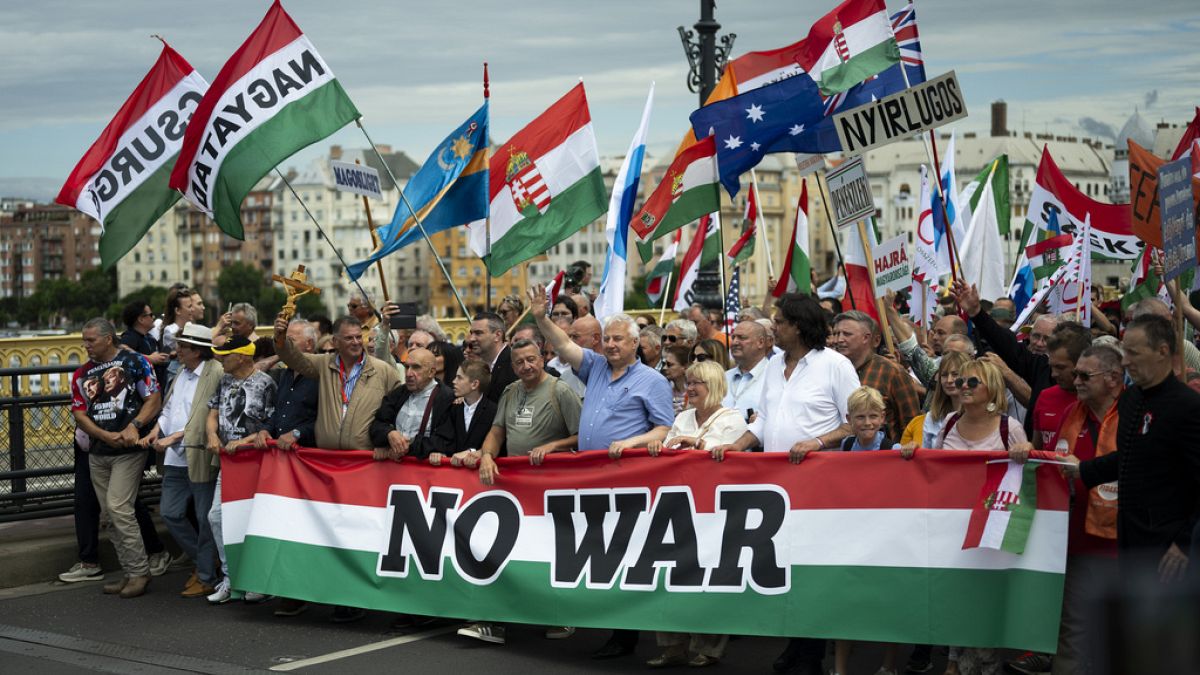World
Brussels drafts plans to avoid EU pharmaceutical shortages

The European Commission presented a series of measures Tuesday to prevent future drug shortages, including the immediate launch of a voluntary EU-wide solidarity mechanism for medicines.
The move comes following reports last winter of stockouts among pharmacies, with France’s medicines safety agency recording over 3,700 reports of stockouts or risks of stockouts.
“For this winter, we’re immediately setting up a new voluntary solidarity mechanism,” the European Commissioner for Health and Food Safety, Stella Kyriakides told reporters on Tuesday.
“This will enable any member states facing shortages to seek support from other member states who may be able to share medicines if they have a sufficient supply.”
Didier Ronsyn, a pharmacist in Brussels welcomed the news and told Euronews that he is already facing issues solving drug shortages.
“Every day, we have to do research to try and keep track of patients’ treatments. We also try to find alternatives when they are available,” Ronsyn said.
“We try to help each other out if we can, and really, in the most complicated cases, we have to say ‘no’. We have to refer back to the doctor so that he can change the treatment if necessary.”
The Commission also intends to draw up a list of critical medicines by the end of the year, which according to Ancel·la Santos Quintano, a senior health policy officer from the European Consumer Organisation (BEUC), will be particularly important.
“It will be a useful tool because it should include medicines that meet priority healthcare needs and it will help facilitate and then the authorities can focus a bit more on these medicines, can analyse the supply chain, can identify vulnerabilities, can introduce measures to tackle those vulnerabilities,” she told Euronews.
“Also, the idea is to have a bit more cooperation and reinforce cooperation and these critical medicines. And all these are measures that we value positively.”
In the long term, the Commission wants to diversify its global supply chains through international partnerships with third countries, as well as strengthen production capacities in the manufacturing of critical drugs and active ingredients.
However, it is keen to stress that the proposals do not signal the reindustrialisation of the European sector.

World
Video: How Internet Access Is Transforming Life in This Amazon Tribe

Since September, the Marubo, an isolated Amazon tribe, were connected to high-speed internet through Elon Musk’s Starlink. Jack Nicas, The New York Times’s Brazil bureau chief, visited the tribe’s remote Indigenous villages to see what the internet has changed for them.
World
Russia not 'bluffing' with nuclear threats as Biden greenlights limited military strikes, Medvedev says
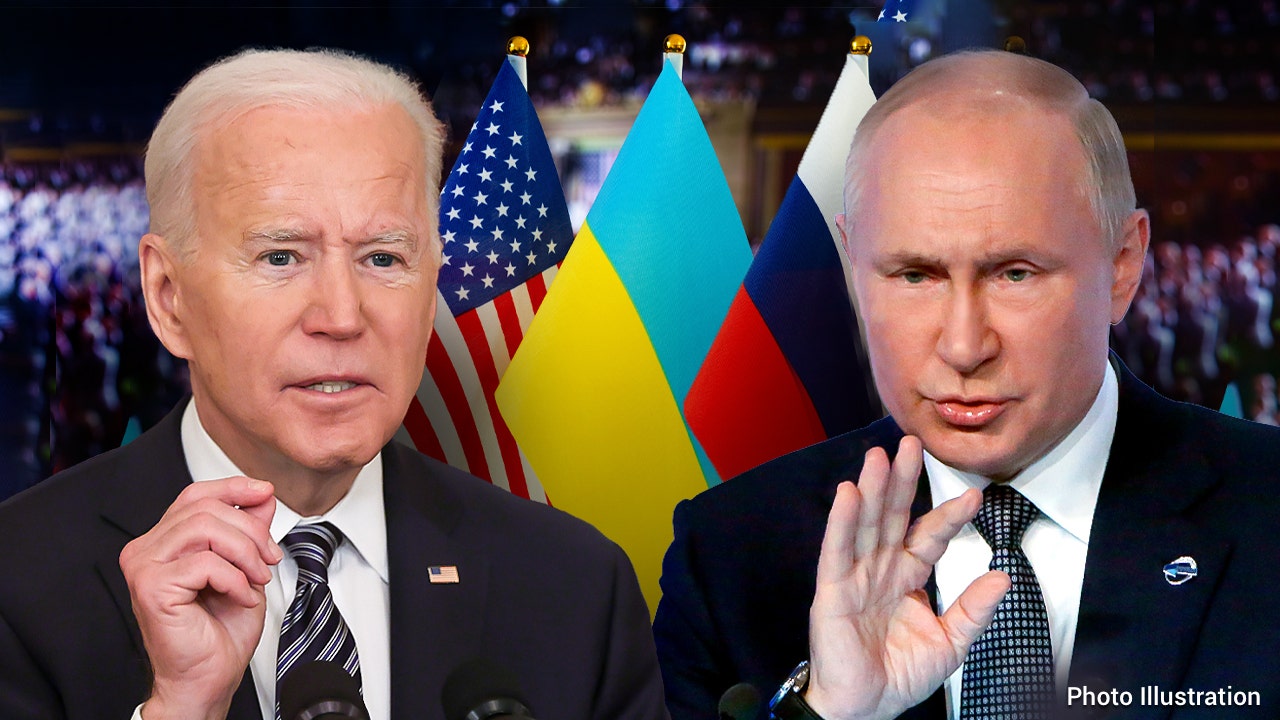
A senior ally of Russian President Vladimir Putin says Russia is not bluffing about using tactical nuclear weapons against Ukraine and warned that the conflict could spill over into other countries.
Dmitry Medvedev, the deputy chair of the Security Council of Russia, made the comments after President Biden quietly authorized Kyiv to launch U.S.-supplied weapons at military targets just over the border in Russia that are supporting an offensive against the northeastern Ukrainian city of Kharkiv.
“This is, alas, neither intimidation nor bluffing,” Medvedev said Friday, speaking on the potential to use strategic nuclear weapons, per Reuters.
UKRAINE SEEKS TO STRIKE RUSSIAN TARGETS WITH WESTERN WEAPONS, ZELENSKYY SAYS
Dmitry Medvedev, a senior ally of Russian President Vladimir Putin, right, says Russia is not bluffing about using tactical nuclear weapons against Ukraine and warned that the conflict could spill over into other countries. President Biden, left, quietly authorized Kyiv to launch U.S.-supplied weapons at military targets just over the border. (Photo by Alex Wong/Getty Images | Photo by Mikhail Svetlov/Getty Images)
Russia has been using staging locations just across the border to enable its attacks against Ukraine and Biden has given Ukraine the go-ahead to use American weaponry to hit back at Russian forces hitting them or preparing to hit them. Germany has also backed the move.
The White House says the policy is limited and prohibits the use of army tactical missile systems (ATACMS) or long-range strikes inside Russia.
In March, the U.S. quietly delivered long-range ATACMS to Ukraine for the first time – which the Ukrainians have since deployed against Russian military forces inside Ukraine.
Medvedev said Friday that “Russia regards all long-range weapons used by Ukraine as already being directly controlled by servicemen from NATO countries.”
“This is no military assistance, this is participation in a war against us. And such actions could well become a casus belli (an act that provokes a war),” Medvedev said Friday, per Reuters.
Medvedev, who served as Russian president from 2008 and 2012, said that the West’s ongoing support of Ukraine could lead to an escalation of the 27-month-old full-scale invasion.
“The current military conflict with the West is developing according to the worst possible scenario. There is a constant escalation when it comes to the firepower of NATO weapons being used. Therefore, nobody today can rule out the conflict’s transition to its final stage,” Medvedev said.
KYIV’S FORCES ARE UP AGAINST A CONCERTED RUSSIAN PUSH IN EASTERN UKRAINE, A MILITARY OFFICIAL SAYS
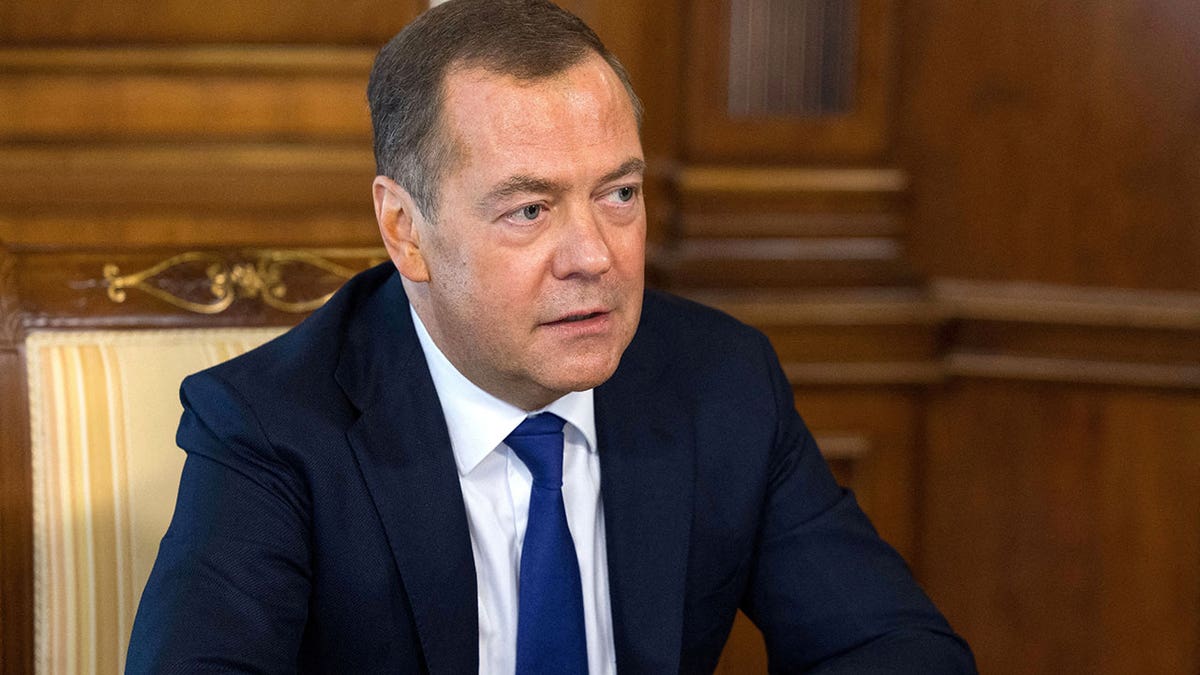
Dmitry Medvedev, the deputy chair of the Security Council of Russia, speaks during an interview with Russian media at a residence outside Moscow, Russia, on March 23, 2023. (Sputnik/Yekaterina Shtukina/Pool via REUTERS)
The comments come as depleted Ukrainian troops are losing ground in the war – and just weeks after the U.S. agreed to send an extra $60 billion in aid to the war-torn country. In the border region of Kharkiv, Ukraine has endured a Russian onslaught this month that has stretched Kyiv’s outgunned and outmanned forces.
The White House says that Russia’s forward progress has stalled and that Russia will not be able to capture Kharkiv.
Russia has only moved forward by a few kilometers and its forces are under relentless barrage by the Ukrainians and suffering at an extraordinary cost, the White House tells Fox News.
Ukrainian President Volodymyr Zelenskyy said Friday that it’s only a matter of time before Ukraine utilizes the Western weaponry to strike Russian territory.
The developments and threats of escalation came just weeks after Gen. Charles Brown, the Chairman of the Joint Chiefs of Staff, said NATO military trainers will eventually be sent to Ukraine, according to a report in the New York Times.
Ukrainian officials have asked their U.S. and NATO counterparts to help train 150,000 new recruits closer to the front line for faster deployment, per the report.
Rep. Eli Crane, R-Ariz., told Fox News Digital at the time that deploying military trainers would lead to a wider war in the region.
Friday’s comments by Medvedev are not the first time he has taken a hardline stance against the West. In January, he warned the U.K. that putting boots on the ground in Ukraine would amount to a declaration of war against Russia.
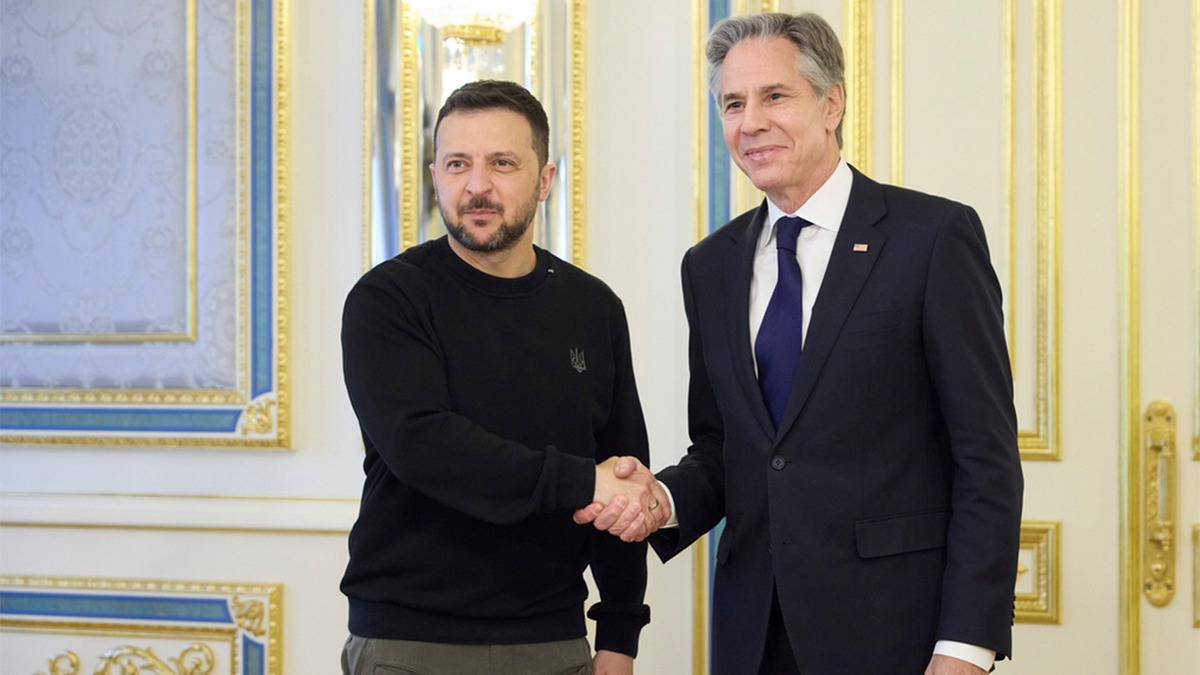
Ukrainian President Volodymyr Zelenskyy, left, greets Secretary of State Antony Blinken, right, prior to their meeting in Kyiv on May 14, 2024. (Ukrainian Presidential Press Office via AP)
In January, he also raised the prospect of nuclear war, warning NATO allies that a defeat for Russia in Ukraine could provoke a nuclear war.
“The loss of a nuclear power in a conventional war can provoke the beginning of a nuclear war,” he said in a Telegram post.
“Nuclear powers have [never] lost major conflicts on which their fate depends,” the Kremlin official added.
Fox News’ Jennifer Griffin, as well as Reuters and The Associated Press contributed to this report.
World
Businesswoman Halla Tomasdottir set to become Iceland’s next president

Tomasdottir wins 34.6 percent of the votes to become the Nordic country’s second female president.
Halla Tomasdottir, a businesswoman and investor, has won Iceland’s presidential election, topping a crowded field of candidates in which the top three finishers were women, the country’s national broadcast service reports.
Tomasdottir, 55, was elected to the largely ceremonial post with 34.3 percent of the vote, defeating former Prime Minister Katrin Jakobsdottir, with 25.2 percent, and Halla Hrund Logadottir, with 15.5 percent, RUV said on Sunday.
Tomasdottir is currently on leave as chief executive of The B Team, a global nonprofit co-founded by UK business tycoon Richard Branson to promote business practices focused on humanity and the climate, and has offices in New York and London.
Iceland’s president holds a largely ceremonial position in the parliamentary republic, acting as a guarantor of the constitution and national unity. He or she, however, has the power to veto a legislation or submit it to a referendum.
Tomasdottir campaigned as someone who was above party politics and could help open discussions on fundamental issues such as the effect of social media on the mental health of young people, Iceland’s development as a tourist destination and the role of artificial intelligence.
She will replace President Gudni Th Johannesson, who did not seek re-election after two four-year terms. Tomasdottir will take office on August 1.
Iceland’s second woman president
Iceland, a Nordic island nation located in the North Atlantic, has a long tradition of electing women to high office.
Vigdis Finnbogadottir was the first democratically elected female president of any nation when she became Iceland’s head of state in 1980.
The country has also seen two women serve as prime minister in recent years, providing stability during years of political turmoil.
Johanna Sigurdardottir led the government from 2009 to 2013, after the global financial crisis ravaged Iceland’s economy.
Jakobsdottir, 48, became prime minister in 2017, leading a broad coalition that ended the cycle of crises that had triggered three elections in four years. She resigned in April to run for president.
In the country of 380,000 people, any citizen gathering 1,500 signatures can run for office.
While Jakobsdottir was at times seen as the favourite, political observers had suggested that her background as prime minister could weigh against her.
Among the other main candidates in the field of 13 were a political science professor, a comedian, and an Arctic and energy scholar.
-

 News1 week ago
News1 week agoRead the I.C.J. Ruling on Israel’s Rafah Offensive
-

 News1 week ago
News1 week agoVideo: Protesters Take Over U.C.L.A. Building
-

 World1 week ago
World1 week agoHoping to pave pathway to peace, Norway to recognise Palestinian statehood
-

 News1 week ago
News1 week agoLegendary U.S. World War II submarine located 3,000 feet underwater off the Philippines
-

 World1 week ago
World1 week agoFamilies of Uvalde school shooting victims sue Microsoft, Meta and gunmaker
-
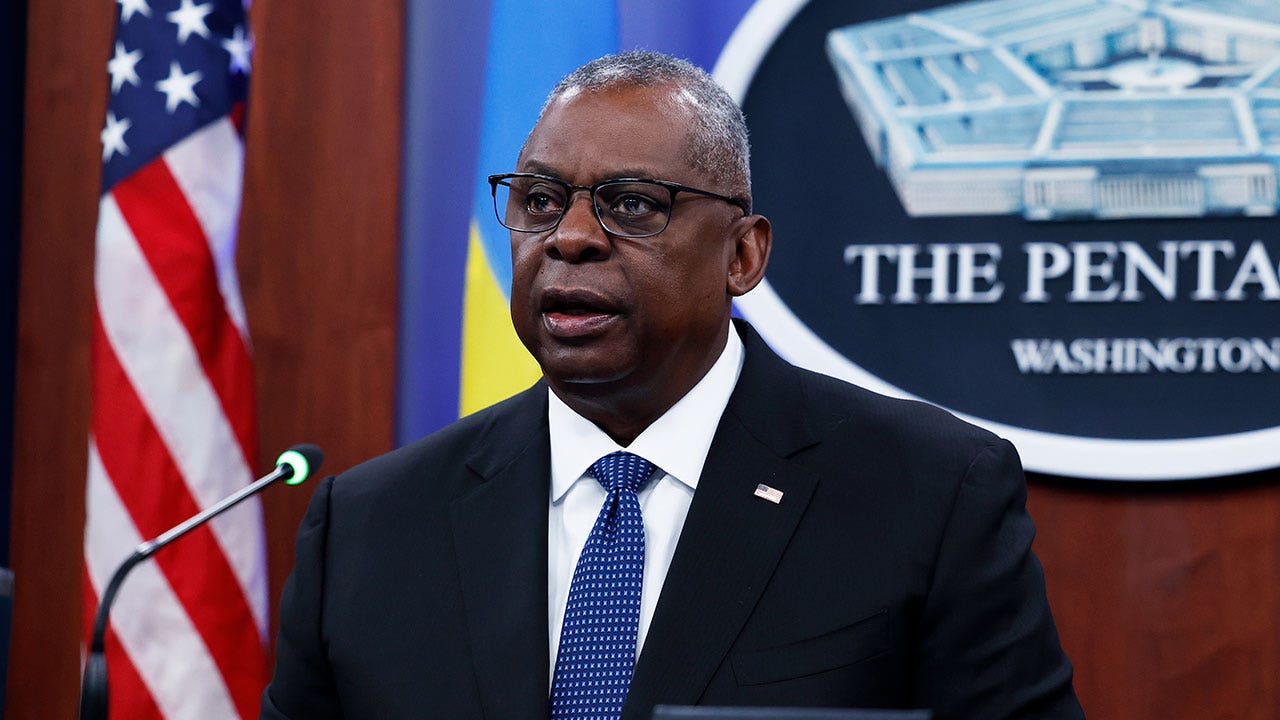
 Politics1 week ago
Politics1 week agoDefense Secretary Lloyd Austin to undergo nonsurgical procedure, Deputy Kathleen Hicks will assume control
-

 Politics1 week ago
Politics1 week agoHunter Biden attends pre-trial hearing in Delaware court on federal gun charges
-

 News1 week ago
News1 week agoHere are three possible outcomes in the Trump hush money trial : Consider This from NPR
